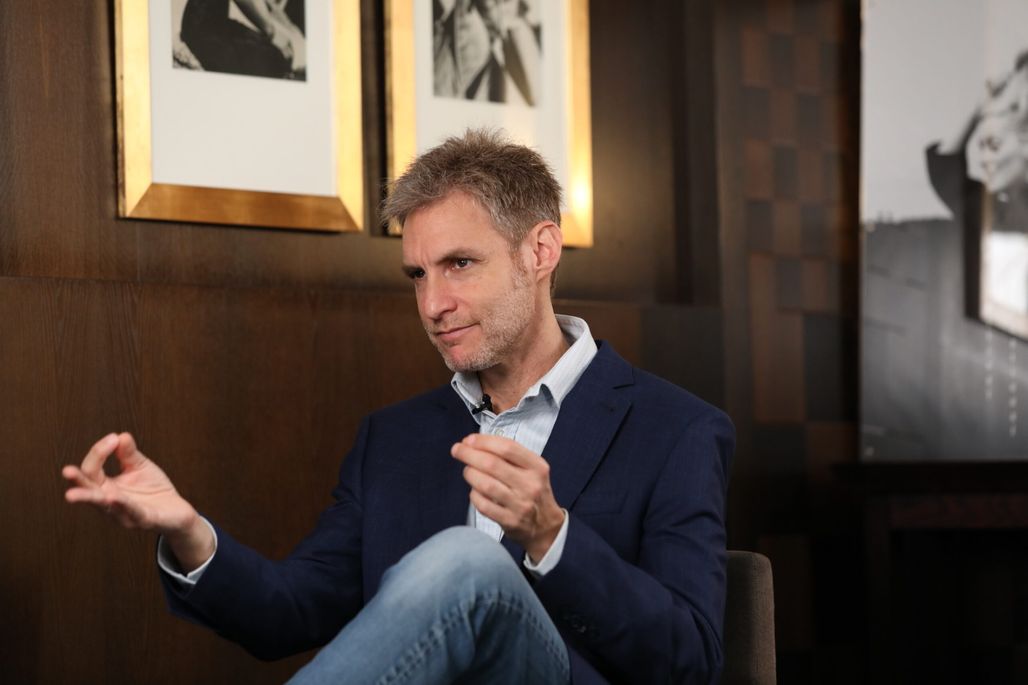
Interview with Damián Szifron, member of the Feature Films Jury

In 2014, his film of shorts Relatos Salvajes (Wild Tales) delighted the Competition and revisited the theme of revenge: what kind of chaos do we create when all the bad thoughts that cross our minds come true in real life? Argentinian director Damián Szifron, member of the Feature Films Jury for this 76th festival, talks about his filmography.
What would you do if you were on the plane in Wild Tales?
I’d try and save everyone! When I write stories, I try to imagine the viewer, who may identify with certain characters’ anguish or pain, and cross the line into barbarity or madness, without actually doing so in real life. This is the cathartic effect of films in general. For my part, there are films that have changed my life, my mindset, and I’ve made decisions based on these changes: cinema has a transformative power.
Can you tell us what films?
The Bridges of Madison County made a huge impression on me. With respect to love, to the couple. I identified with Meryl Streep’s character at the time. It’s a film that makes you think, that challenges you, that pushes you to look at your own life and say: “I’m fine here, I can do what I want“! There are works like that which have brought me closer to cinema, which made me a director or cemented that path.
And in your childhood?
When I was very young, at the age of three, Richard Donner’s Superman made a big impact on me. Seeing Superman in the cinema is my first memory of life. The size of the screen, the music of John Williams, Superman and Lois Lane flying through the stars, the pure black of the sky, you can imagine! The film entered the deepest part of my brain and I have never forgotten it. It was “Bigger Than Life”.
Back to feelings. Would you say revenge is fertile ground for creating, for writing stories?
Wild Tales, and my new film, To Catch a Killer, both include the theme of revenge. In Wild Tales, it’s a revenge that’s more familiar to a normal viewer, closer to everyday life. In To Catch a Killer, it’s a bit more like biblical revenge. It’s fury unleashed against a species. And in the series Los Simuladores, which was very successful in Argentina, the damage that some people do to others, in politics and business, causes considerable pain that can only be alleviated through an active, concrete response to eliminate this tension. That, I feel, is very human. It’s like with sexuality, when there is tension… the orgasm is how this tension is released. In love, when there is pain and suffering, the tension has to be released in some way, at the risk of causing emotional damage.
So it’s a topic that I like, somewhat taboo, and films are a powerful way to tackle it. I’m intellectualising here, but at the time of writing, it’s more organic. I feel that cinema has a capacity, for both the person making it and the audience too, almost for exorcism, a cathartic response, whether through laughter, tears, tension or emotion.
“Good cinema revolutionises you inside.”
You shot your last film in English. Is it different filming in another language?
To Catch a Killer is an American production, a thriller that I shot in Montreal, entirely in English. It was a very intense and very difficult experience, a really complicated project. It’s not the same as touring your country with friends, producers you already know. Basically, I felt a bit like the dog in Jack London’s “The Call of the Wild”, who begins his best life as a dog in a beautiful house, they feed him, he’s extremely pampered, with a spot in front of the fireplace, then the owner dies, and one of the people who works in the house sells him to some guys in the street.
Which Wild Tales character are you?
I am the sum of them all. But for me, good writing isn’t about controlling what the characters do, it’s about creating a really solid foundation and letting them do the talking. It’s a bit like with children: they have your genes, those of your partner, you raise them, and suddenly they surprise you with phrases, decisions, tastes and desires that weren’t planned or expected, and which feel foreign. They have a personality that you have helped create to a large extent, but then they gain independence. In that sense, I’m all the good guys, the bad guys, the sum of them all. I’m a deferential witness to the destiny that the characters create for themselves, and to the interconnection between them.



